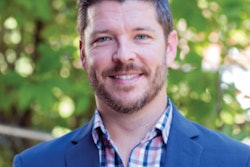
CHICAGO - Dental school is great for learning the clinical skills dentists need to excel in their profession. But navigating life after school requires more than technical knowledge, according to Alan J. Acierno, DDS, CEO of dental service/support (DSO) organization DecisionOne Dental Partners.
Dr. Acierno, who is also a practicing dentist, spoke about what dental students should know about life after graduation at the Chicago Dental Society 2019 Midwinter Meeting. He emphasized that new dentists will need to build leadership and business skills once they get their licenses.
"Dentistry ends up becoming the easy part to the profession once you are out of school," Dr. Acierno told DrBicuspid.com. "Being a boss, a leader, and a business person is the hard part."
There's no one right path
Forty years ago, dentists would graduate from school, start a practice, and work there for decades until they retired, Dr. Acierno said. But dentistry in 2019 is very different than it was in the 1980s.
 Alan J. Acierno, DDS.
Alan J. Acierno, DDS."Dental insurance, technology, and cost of education are all putting strains on the industry, so the job market is changing," he noted.
New dentists of today often have to decide between entering private practice and corporate dentistry, and Dr. Acierno believes there is no one right answer for everybody.
"If you have an entrepreneurial spirit and you want to own your own practice, I would suggest you do it," Dr. Acierno said. "For those that don't, group practices are becoming much more common."
However, it's important to remember that not all group or private practices are the same. Dr. Acierno recommends doing your homework to make the best decision possible.
"Having little or no experience working in a dental office, young dentists don't know what they don't know," he said. "When they are interviewing for jobs, they don't know the right questions they should be asking in order to figure out if the position and office would be a good fit."
Dr. Acierno recommended asking about the practice's treatment philosophy to gauge whether the office might be right for you and whether you're on the same page as the current dental staff.
"Patients like consistency, so it is important for a multidoctor practice to speak the same language and treat similarly," he said. "In instances where a young doctor is going to be taking over for a doctor wanting to retire, a firm timeline needs to be in place so everyone shares the same expectations."
Dental school is just the start
New dentists may think that graduation means the end of education, but successful dentists are always learning, Dr. Acierno noted. In a dentist's early career, that learning will likely be focused on the nonclinical skills that aren't taught in dental school.
“Being a boss, a leader, and a business person is the hard part.”
"There are four areas that you must focus on in order to be a successful dentist," Dr. Acierno said. "Those four areas are clinical skills, communication, leadership, and business."
For instance, leadership and communication will help dentists guide and support patients and the other members of the dental team. In addition, business skills are paramount because if a practice is not profitable, the dentist ultimately can't help anybody.
Fortunately, plenty of people have successfully transitioned from dental school into practicing dentists, and they're often willing to help answer questions and provide guidance. In fact, Dr. Acierno said finding a mentor is the best advice he can give a new dental school graduate.
"Doctors who have lived and experienced the profession will have more wisdom and guidance than any book or course will," he said. "They can tell you the things they did right and the mistakes they made. Dentistry is such a great profession because dentists are passionate about it and truly want to help one another."



















